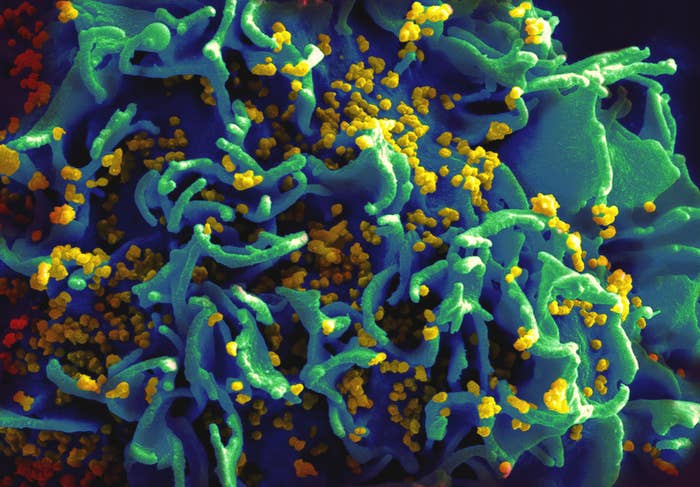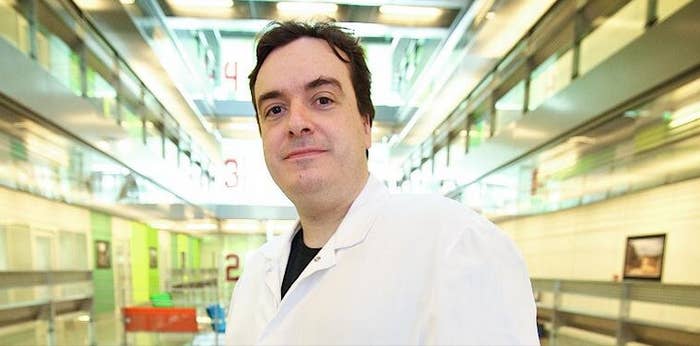
A French teenager who was born with HIV and given intensive drug therapy in early childhood has been HIV-free for 12 years, without the use of any medications.
Her case was presented on Monday at the 2015 International AIDS Society conference in Vancouver.
The 18-year old girl is the longest-running instance of HIV remission in children to date, and is raising hopes that long-term interruption of the infection is possible in other kids as well.
Still, researchers warn about making too much of incredibly rare remission cases.
"This is an event that happens once in a while, and it doesn't happen to most people," David Margolis, a molecular biologist who studies HIV at the University of North Carolina at Chapel Hill, told BuzzFeed News.
He added: "I would not like the general patient population thinking it's a good idea to stop taking therapy to see if their bodies can magically control it on their own."

Asier Saez-Cirion, a molecular biologist at the Pasteur Institute in Paris, unveiled the unidentified teenager's case.
The girl is not technically cured: Although she doesn't carry detectable levels of HIV in her blood, she does carry other biological signatures of the virus.
Scientists are still trying to figure out how exactly she has managed to stave off the virus for so long.
The girl was treated intensely with antiretroviral drugs from birth until about 6 weeks old. Treatment was temporarily stopped for a couple of months, and then she was put on an intense regimen until age 6.
At that point, her parents apparently decided to stop the treatment, and stopped going to the doctor. They went back a year later, when doctors discovered that the virus was undetectable in her blood. That's still the case today.
"With this first, highly documented case of this young woman, we provide the proof of concept that long-term remission is possible in children, as in adults," Saez-Cirion said in a statement released by the Pasteur Institute.
He added: "Most likely she has been in virological remission for so long because she received a combination of antiretrovirals very soon after infection."
There have been a couple of other reported cases of HIV remission in children, but none have lasted this long.
One case, known as the "Mississippi Baby," was born to an HIV-infected mother in 2010.
The infant was put on aggressive antiretroviral treatments until she was 18 months old, when her doctors lost track of her. Five months later, the doctors found her — no longer on any drug treatments — but with undetectable amounts of the virus in her blood. She survived drug and HIV-free for nearly two years before succumbing again to infection at the age of 4.
Another case involved a 3-year-old in Milan. Doctors initially believed most of the virus had been wiped out, but then the child relapsed after two weeks off of drug treatments.
A group of 14 French adults known as the "Visconti cohort" had their HIV infections detected and treated early for an average of three years, and have since continued with undetectable amounts of the virus with no treatment.
With all of these cases, no one knows why remission happens — or how long it will last.
"This young woman is still infected by HIV and it is impossible to predict how her state of health will change over time," Jean-François Delfraissy, director of the French National Agency for Research on AIDS and viral hepatitis, said in the statement.
"There's always the hope though," Margolis said, "that these unusual experiences will teach us something important."
